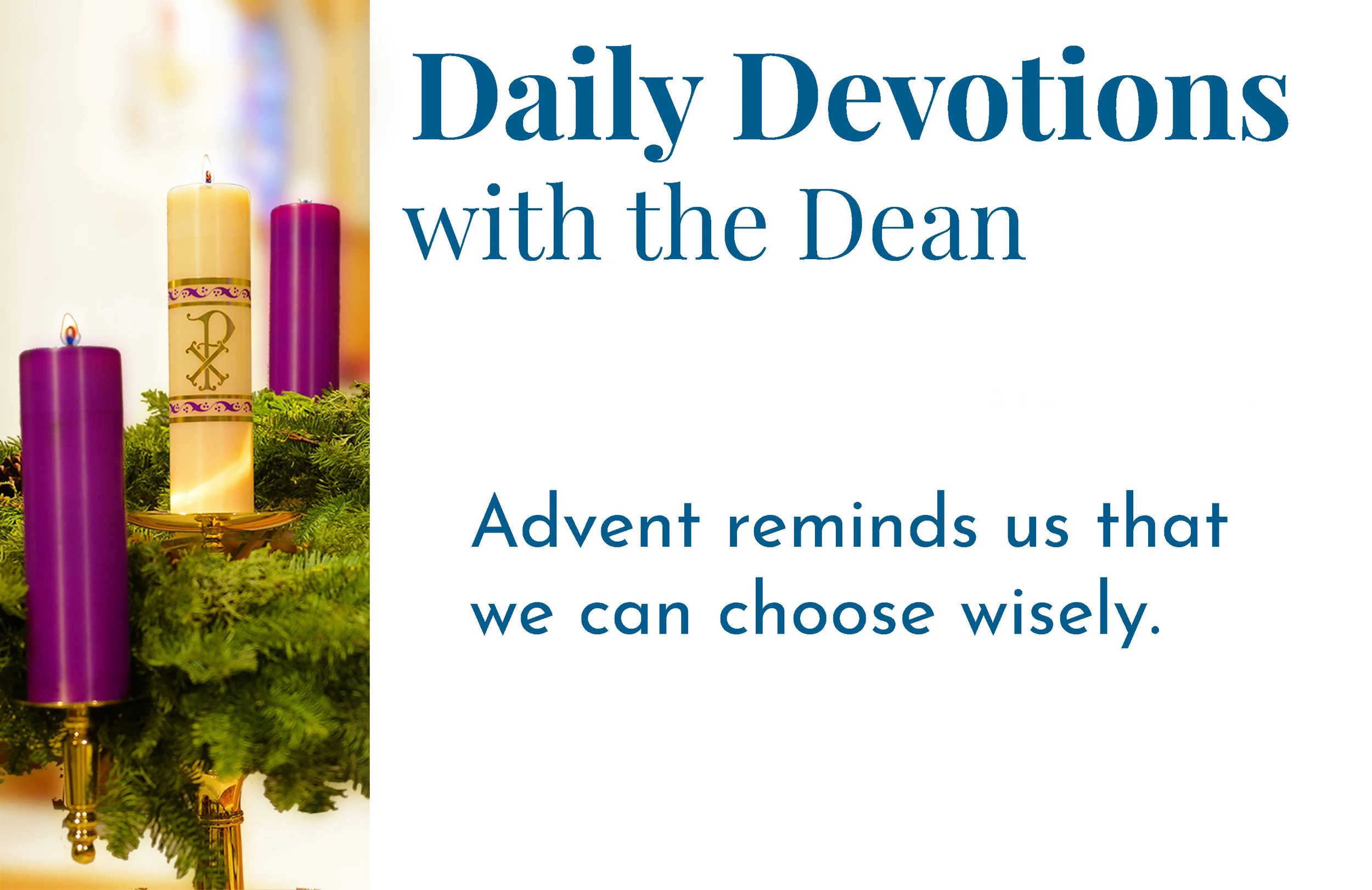Tuesday • 11/30/2021
Tuesday of the First Week of Advent
This morning’s Scriptures are: Psalm 5; Psalm 6; Amos 3:1–11; 2 Peter 1:12–21; Matthew 21:12–22
For observations on 2 Peter 1:12–21 from 12/15/2020, see https://tinyurl.com/4rvk9yxh
This morning’s Canticles are: following the OT reading, Canticle 13 (“A Song of Praise,” BCP, p. 90); following the Epistle reading, Canticle 18 (“A Song to the Lamb,” Revelation 4:11; 5:9–10, 13, BCP, p. 93)
Collect for the First Sunday of Advent. Almighty God, give us grace to cast away the works of darkness, and put on the armor of light, now in the time of this mortal life in which your Son Jesus Christ came to visit us in great humility; that in the last day, when he shall come again in his glorious majesty to judge both the living and the dead, we may rise to the life immortal; through him who lives and reigns with you and the Holy Spirit, one God, now and for ever. Amen.
Amos and Advent
Chronologically, Amos is the first of the great classical prophets (like Hosea, Isaiah, and Jeremiah). A poor shepherd and horticulturalist from the southern kingdom of Judah, Amos is called by Yahweh to travel to the northern kingdom of Israel. It’s the middle of the 8th century B.C., and Israel is enjoying a long period of prosperity and expansion under Jeroboam II. Nobody sees the devastation that awaits, for Assyria to the east has not yet arisen as a threatening world power. However, Yahweh anticipates the seeds of Israel’s destruction in its violation of the covenant, and he sends Amos north to call Israel to repentance.
Israel tolerates exploitation of the poor. Fortunes are made by the usurious pressing of poor farmers to the brink of bankruptcy, then the seizing of their land (Amos 2:6–7). Shockingly, for a people to whom the Law teaches stringent sexual boundaries (Genesis 2:23–24; Leviticus 18:7–30), predation is rampant: “Father and son go in to the same girl, so that my holy name is profaned” (Amos 2:7b). People defile worship by laying at their altars money they have stolen and extorted (Amos 2:8).
Despite the luster of life under Jeroboam II, what lies beneath is corrupt. Israel’s very existence is predicated upon their being a vanguard—a promise in advance—of the restoration of human worth and dignity in union with God. Instead, Israelites are showing themselves to be as worthy of judgment as anybody else. God’s chosen people simply get added to the other nations Yahweh will judge: Damascus, Philistia, Tyre, Edom, Ammon, Moab…and Judah and Israel (Amos 1:3–2:16).
During the season of Advent, we examine our own lives for the same vestiges of corruption, asking God’s grace to “cast away the works of darkness and put on the armor of light.”
Darkness will give way to light. Advent reminds us that the light broke in when God sent his Son in great humility. And Advent reminds us that the light will break in once again when the Son returns in glorious majesty. The sober, and indeed honoring, choice the Bible puts before us is whether to play a part ourselves in casting away those works of darkness, or (and this would be painful) waiting for the Lord do it all.
You only have I known… (Amos 3:1). Yahweh will allow his love to be ignored only so long. Amos recalls the language of God’s covenant. “You only have I known” is not language of mere cognition. Yahweh is well acquainted with all the nations. But there is only one people with whom he has shared his heart, and that is the sense in which he says, “You only have I known.” As Adam “knew” Eve, and she bore a child (Genesis 4:1), so Yahweh has “known” Israel, and has looked for his life to be reproduced in her. With love, God has chosen this people from all the nations to be the place where he reinserts grace and justice and mercy into the human experience. And now, much like a parent who reluctantly allows a child to receive the consequences of disobedience, so Yahweh calls the nations to his service: “Proclaim to the strongholds in Ashdod, and to the strongholds in the land of Egypt, and say, “Assemble yourselves on Mount Samaria” (Amos 3:9a).
In advance of judgment, Amos calls God’s people to repent, to cast out the works of darkness, lest Yahweh do it for them. We know they choose badly. Advent reminds us that we can choose wisely.
Be blessed this day,
Reggie Kidd+


